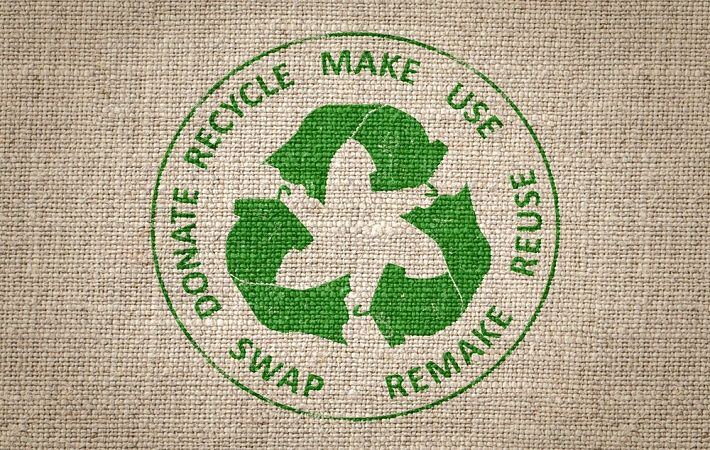Interviews
UK report on circular textiles calls for radical change in industry
17 Jun '21
2 min read

Pic: Shutterstock
The textile industry must focus on resource efficiency, end-of-life recyclability and sustainable development from renewable natural materials and that needs immediate action to reduce further damage to the planet, according to a new report by UK-based Professional Clothing Industry Association Worldwide Ltd. (PCIAW) and Business in the Community (BITC).
The report on circular textiles looks at the environmental implications of current textile wastage, alongside ongoing research and cutting-edge practices that should lead to an increase in corporate environmental responsibility in future years.
It aims to educate manufacturers, suppliers, buyers and designers in the principles and practices of circularity in textiles for workwear, including personal protective equipment and corporate wear. It details best practice in the disposal of textiles and looks at how circularity can be designed-in to the whole process of making, using and re-using textiles, a press release from the publishers said.
PCIAW aims at reducing excess consumption, getting businesses on board with the message. Textiles account for 10 per cent of global carbon emissions, 20 per cent of global industrial wastewater pollution and less than 1 per cent of material used in the production of clothing is recycled into new clothing at its end-of-life stage.
This report serves as a guide for the government-backed Textiles 2030 initiative, which aims to massively cut textile waste and has been created as an overview of the current state of the sector. It reviews current principles and practices in the textile industry and focuses on the present facilities available for recycling technologies and renewable energy.
To achieving these aims, the report suggests manufacturing locally to reduce waste and stimulate local economies disrupted by the pandemic, extended producer responsibility (EPR), design-in recyclability, end-of-life procedures, and remove obstacles relating to recyclable textiles for buyers, suppliers, and manufacturers who are looking at implementing these into their supply chain.
Leading industry organisations and companies that assisted in producing the report include the Teesside University, University of Leeds, University of Basel, Lenzing Fibres, Project Plan B, Stuff4Life, DenimX, Worn Again Technologies, Decontex, APT Fabrics, Avena , wear2wear, Sympatex Technologies, INVISTA CORDURA Brand, W. L. Gore & Associates and Plimsoll.
The report on circular textiles looks at the environmental implications of current textile wastage, alongside ongoing research and cutting-edge practices that should lead to an increase in corporate environmental responsibility in future years.
It aims to educate manufacturers, suppliers, buyers and designers in the principles and practices of circularity in textiles for workwear, including personal protective equipment and corporate wear. It details best practice in the disposal of textiles and looks at how circularity can be designed-in to the whole process of making, using and re-using textiles, a press release from the publishers said.
PCIAW aims at reducing excess consumption, getting businesses on board with the message. Textiles account for 10 per cent of global carbon emissions, 20 per cent of global industrial wastewater pollution and less than 1 per cent of material used in the production of clothing is recycled into new clothing at its end-of-life stage.
This report serves as a guide for the government-backed Textiles 2030 initiative, which aims to massively cut textile waste and has been created as an overview of the current state of the sector. It reviews current principles and practices in the textile industry and focuses on the present facilities available for recycling technologies and renewable energy.
To achieving these aims, the report suggests manufacturing locally to reduce waste and stimulate local economies disrupted by the pandemic, extended producer responsibility (EPR), design-in recyclability, end-of-life procedures, and remove obstacles relating to recyclable textiles for buyers, suppliers, and manufacturers who are looking at implementing these into their supply chain.
Leading industry organisations and companies that assisted in producing the report include the Teesside University, University of Leeds, University of Basel, Lenzing Fibres, Project Plan B, Stuff4Life, DenimX, Worn Again Technologies, Decontex, APT Fabrics, Avena , wear2wear, Sympatex Technologies, INVISTA CORDURA Brand, W. L. Gore & Associates and Plimsoll.
Fibre2Fashion News Desk (DS)
Popular News
Leave your Comments
Editor’s Pick
































-Ltd..jpg?tr=w-120,h-60,c-at_max,cm-pad_resize,bg-ffffff)





.jpg?tr=w-120,h-60,c-at_max,cm-pad_resize,bg-ffffff)
.jpg?tr=w-120,h-60,c-at_max,cm-pad_resize,bg-ffffff)






